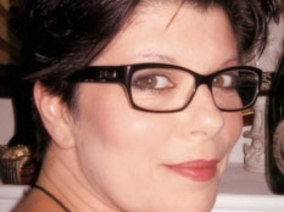
By Dori Hartley

They tell me I have very little time left before my sweet and adoring 13-year-old daughter does an about face on me and becomes a venom-spewing mega-bitch on wheels. They -- the great mothers of the world -- have promised me, in no uncertain terms, that the rejection of my motherly ways will not only be guaranteed but also that the animosity that comes with it will be served piping hot, and peppered with cruelty.
Which leads me to wonder: What could possibly happen that could crush my heart to such a degree that I might someday join the ranks of those who give this warning? Is this my destiny as a parent -- to experience the teenage reign of hellfire and rejection? Or, better yet, am I supposed to be shocked, stunned and rip-roaring ready to commit suicide over it?
I mean, what is she going to do? Tell me I'm an ugly old hag, that she hates me and that I need to die? Will there be attempts on my life, contracts out on my head, or is this threat more along the lines of her just ignoring me and occasionally giving me a smug look?
I've already been instructed to keep ten paces behind her when walking together in a public place. If I'm caught humming a tune in the supermarket aisle, I'm shushed, silenced and forbidden. I know that the notifications she gets on her iPhone take precedence over anything I might have to say, be it trivial or important, and oddly enough -- I'm cool with it all.
That's the thing. I'm just not that bothered by the idea of her wanting to assert her own independence, and it doesn't rattle my ego all that much that my physical presence embarrasses her. And, as I did mention, she is sweet and adoring -- this is the absolute truth. But she is also human, so I don't expect the adoration and sweetness to be robotic, unfailing or even consistent.
I suppose what gets so deeply under the skin of all these terribly traumatized parents is that perhaps, when they had their kids, they simultaneously lost their concept of what a boundary is. Our children are not extensions of our own bodies, and it would certainly be narcissistic to think they don't come with their own personal boundaries -- ones that we must respect.
Simply because we brought them into the world doesn't mean we necessarily have the right to control how they should feel about us.
Kids simply want their own space. Call me wacky, but that seems reasonable enough to me, at any age.
I know that there are those of you, right now, shaking your heads and saying, "Oh, you think you're such a rebel, Dori Hartley, with your free-spiritedness and your lack of discipline! You're a fool, woman -- a naïve fool! Experts far and wide agree that teenage girls turn on their mothers, and yours will too!"
Experts have also told us that the number one, ultimate rule of the parent-child relationship is that a mother must never, under any circumstance, ever consider being best friends with her daughter. This tenet suggests that never the twain shall meet, and should they try, they would cancel each other out -- meaning that one simply cannot be both a parent and a friend at the same time.
Really? I guess I blew that one too. Because my 13-year-old daughter has been my best friend for quite a while, and I actually thinks she likes it that way.
Being a mother and a friend gives me a much broader perspective, which also prepares me for the onslaught of menacing teenage-horndog prompts, such as:
"Mom, why do boys always seem to have boners?"
"Mom, did you ever do it with a girl?" "Mom, when did you lose your virginity?"
I laugh, shake my head, laugh some more, and then of course shake my head. Again.
We both know the discussion is closed. You see, the friendship part allows her to feel safe enough to ask, and the mom part is disciplined enough to not answer.
I move in to give her a big Mommy-hug, which she reluctantly allows me to do (and is about as satisfying to me as hugging a chair). A good time is had by all.
Balance and respect. That's what it's all about. A little laughter, a little leeway, the setting of limits and, of course, reciprocity.
So, I'm hoping that unless I'm subjected to some sort of unforeseen total mental breakdown, the process of balance and respect that I've had going on with my daughter for the past 13 years should still be intact through the years 15 through 18.
If not, I guess for the first time in my life, I'll get to experience what it's like to be just like everybody else: an expert.
Native New Yorker Dori Hartley is a writer and illustrator who has contributed to print and online publications including Psychology Today, MyDaily, and Parentdish. Hartley started her writing career as a lyricist, penning tunes for Tears For Fears, The Goo Goo Dolls and Carlos Santana. Her lyrics inspired the writers of the HBO series The Sopranos to create an entire show revolving around her song "Nobody Loves Me But You." Read her blog on Red Room.